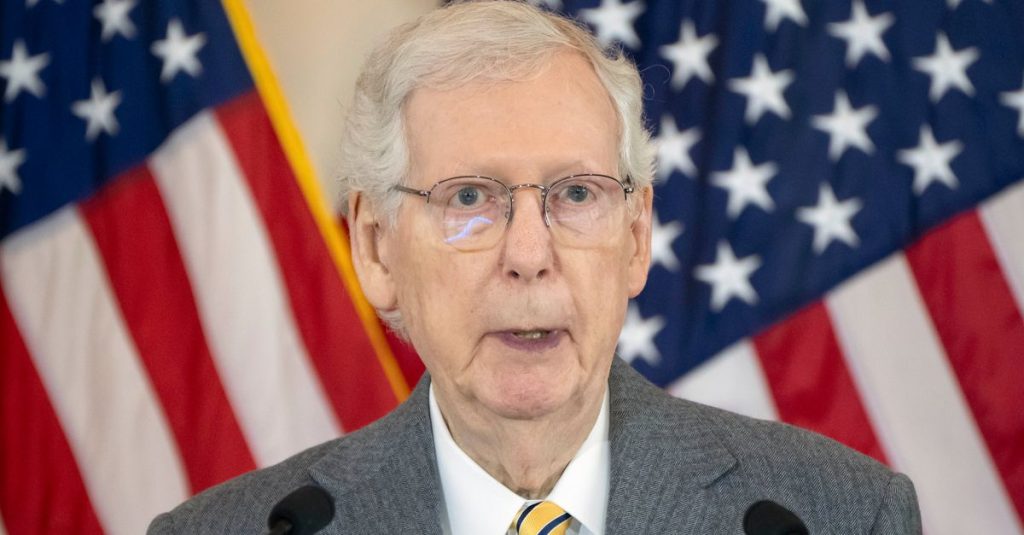Senate Minority Leader Mitch McConnell has expressed support for a bill that would ban TikTok nationwide, calling the app one of “Beijing’s favorite tools of coercion and espionage.” TikTok, owned by the Chinese company ByteDance, has long been viewed as a security risk by U.S. officials due to concerns over data sharing with the Chinese government. The House recently passed legislation that would require ByteDance to sell the platform within six months or face a nationwide ban, which McConnell appeared to endorse. He argued that divesting Beijing-influenced entities from TikTok is a necessary step to protect American children and address national security threats.
While some members of Congress have raised concerns about the constitutionality of the House bill and its potential impact on freedom of speech, McConnell insisted that restricting TikTok does not violate First Amendment rights. He emphasized the distinction between free speech on the platform and actions taken by a company tied to a strategic competitor like China. Former President Donald Trump’s attempt to ban TikTok in 2020 was blocked by the courts on First Amendment grounds, highlighting the legal challenges involved in regulating social media platforms.
Treasury Secretary Janet Yellen mentioned that the issue of TikTok was raised during talks with Chinese officials, acknowledging U.S. concerns about citizen data privacy. Yellen expressed a desire to find a way forward on the matter, indicating that it is important to both countries. President Joe Biden has signaled his willingness to sign the House bill if it reaches his desk, while Trump, who previously advocated for a TikTok ban, now believes that such a move would benefit Meta and its CEO Mark Zuckerberg.
McConnell’s remarks underscore the ongoing debate over the national security implications of TikTok and the broader concerns about Chinese influence in the tech industry. With bipartisan support for legislation targeting ByteDance, there is growing momentum to address the perceived risks posed by Chinese-owned platforms operating in the U.S. Congress faces the challenge of balancing security concerns with constitutional principles as it navigates the complex landscape of social media regulation and foreign policy considerations. The outcome of this legislative effort will have significant implications for the future of tech regulation and U.S.-China relations in the digital age.


